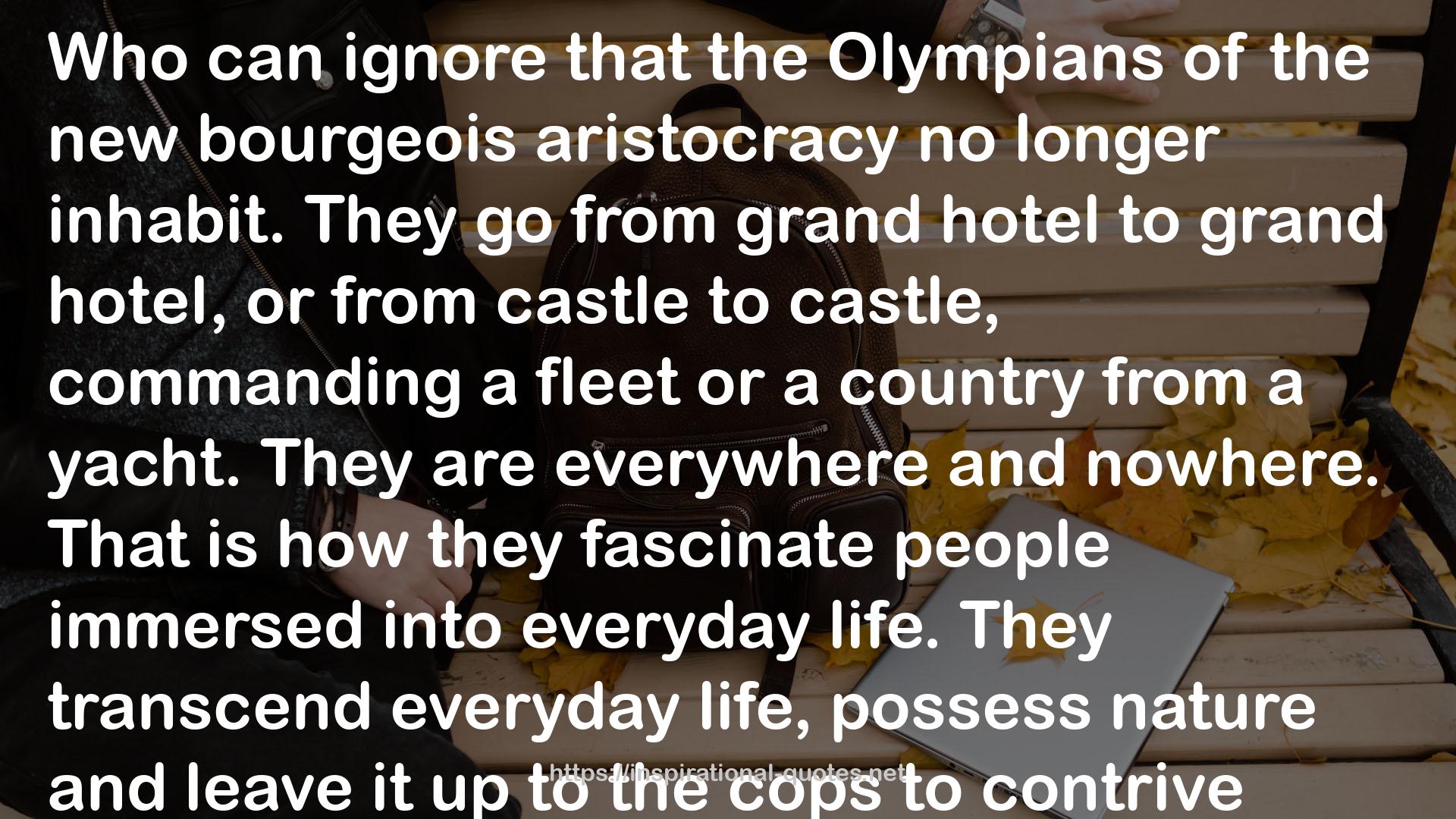" Who can ignore that the Olympians of the new bourgeois aristocracy no longer inhabit. They go from grand hotel to grand hotel, or from castle to castle, commanding a fleet or a country from a yacht. They are everywhere and nowhere. That is how they fascinate people immersed into everyday life. They transcend everyday life, possess nature and leave it up to the cops to contrive culture. Is it essential to describe at length, besides the condition of youth, students and intellectuals, armies of workers with or without white collars, people from the provinces, the colonized and semi-colonized of all sorts, all those who endure a well-organized daily life, is it here necessary to exhibit the derisory and untragic misery of the inhabitant, of the suburban dweller and of the people who stay in residential ghettoes, in the mouldering centres of old cities and in the proliferations lost beyond them? One only has to open one's eyes to understand the daily life of the one who runs from his dwelling to the station, near or far away, to the packed underground train, the office or the factory, to return the same way in the evening and come home to recuperate enough to start again the next day. The picture of this generalized misery would not go without a picture of 'satisfactions' which hides it and becomes the means to elude it and break free from it. "
― Henri Lefebvre , Writings on Cities
